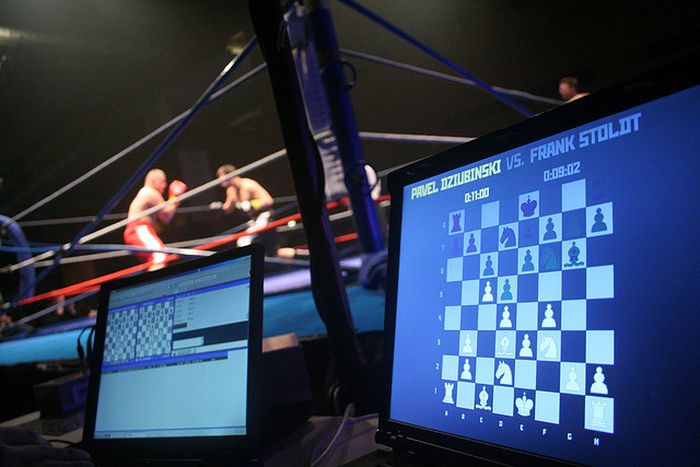
Battle Within The Commission, 1st Round
Published on
Translation by:
Marion JungYesterday, Tuesday the 27th of May, the 28 heads of State and Government held a meeting at the European Council with the aim of taking a decision regarding the future president of the European Commission. The expectations were high but the outcomes were poor. The final decision was to give Herman Van Rompuy a mandate in order to find a president to this Commission.
This decision announces that the negotiations between the present parties can start. The States, like the Council and the different political parties will all have a role to play in the designation of the head of the European executive. Indeed, as indicated precedently, the chosen candidate must achieve the qualified majority of the European Council and must obtain a large majority from the Parliament. But first of all: the States. This is why David Cameron, Angela Merkel, François Holland and all their friends arrived yesterday, ready to discuss and exchange during what they call an “informal dinner”. During that evening, groups have already been formed, thanks to the pro or against Junckler - who arrived first at the elections - debate. But as underlined by Angela Merkel “there will be no automatic choice” and all the possibilities remain possible.
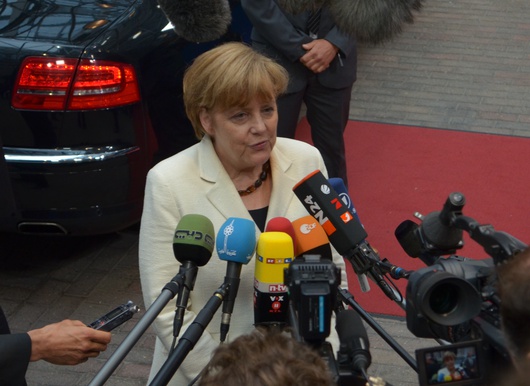 Angela Merkel, one of the first to come out from the official cars, opens the meeting by indicating the complexity of the negotiations to come. “We have to see who wants to collaborate with who. We would like to focus on the programmes, the content and we will discuss again the personality [of the candidates]. At the end, a series of people will be selected. We have to think about how we can satisfy the socialists, the EPP, etc”. However she indicates her clear support to Junckler "As a member of EPP, I suggest that Jean-Claude Junckler becomes the president of the European Commission.”
Angela Merkel, one of the first to come out from the official cars, opens the meeting by indicating the complexity of the negotiations to come. “We have to see who wants to collaborate with who. We would like to focus on the programmes, the content and we will discuss again the personality [of the candidates]. At the end, a series of people will be selected. We have to think about how we can satisfy the socialists, the EPP, etc”. However she indicates her clear support to Junckler "As a member of EPP, I suggest that Jean-Claude Junckler becomes the president of the European Commission.”
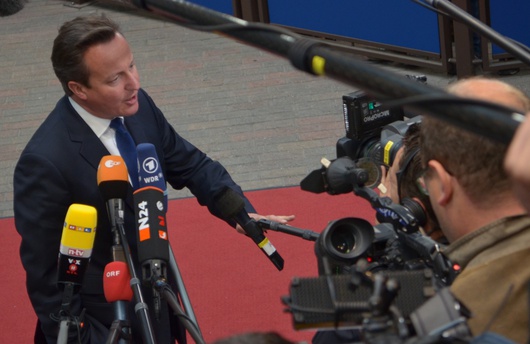 David Cameron, who witnessed the victory of the eurosceptic party UKIP at the last election, starts his speech by a discourse targeting as always the satisfaction of the British electorate. “We should have an approach that acknowledges that Brussels is too important, too authoritarian and intrusive.” He therefore indicates that the difficulty to give a clear mandate to the future president of the Commission is above all based on the different expectations between the States. He positions himself against Junckler: “Europe needs to change and we don’t need a man from the past”.
David Cameron, who witnessed the victory of the eurosceptic party UKIP at the last election, starts his speech by a discourse targeting as always the satisfaction of the British electorate. “We should have an approach that acknowledges that Brussels is too important, too authoritarian and intrusive.” He therefore indicates that the difficulty to give a clear mandate to the future president of the Commission is above all based on the different expectations between the States. He positions himself against Junckler: “Europe needs to change and we don’t need a man from the past”.
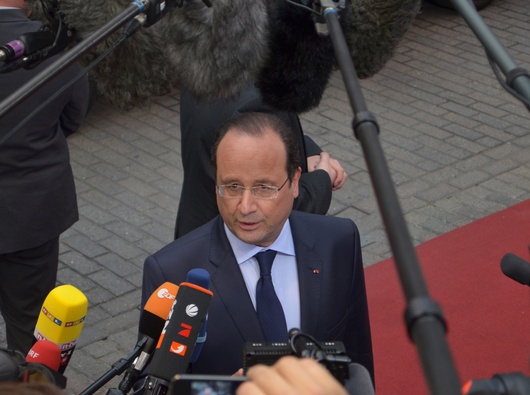 As far as François Hollande is concerned, he is looking to reform this mandate and orientate it towards the promises he had made during his campaign for the presidency two years before. “I wish that the mandate for this Commission focuses on the growth, employment and energy, and on more protection.” Very weakened by the elections results, he is looking to restore his image by trying to satisfy the expectations of the French citizens. Moreover, François Hollande doesn’t want to take the blame for the decision of his country « When France votes like it did on Sunday (…), yes there is a problem but not only for France. This is a problem for Europe and Europe has to hear it.”
As far as François Hollande is concerned, he is looking to reform this mandate and orientate it towards the promises he had made during his campaign for the presidency two years before. “I wish that the mandate for this Commission focuses on the growth, employment and energy, and on more protection.” Very weakened by the elections results, he is looking to restore his image by trying to satisfy the expectations of the French citizens. Moreover, François Hollande doesn’t want to take the blame for the decision of his country « When France votes like it did on Sunday (…), yes there is a problem but not only for France. This is a problem for Europe and Europe has to hear it.”
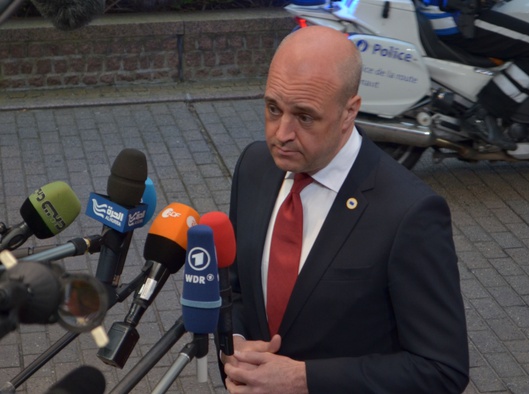 A group has also been formed against Jean-Claude Juncker using different kinds of arguments. For instance, Victor Orban and Frederik Reinfeldt have disapproved the first of the list system and are therefore opposed to the nomination of the EPP candidate. They can also count on other allies in this campaign since the Finnish Jyrki Katainen, and the liberal Dutch Mark Rutte have expressed their disagreement on his designation.
A group has also been formed against Jean-Claude Juncker using different kinds of arguments. For instance, Victor Orban and Frederik Reinfeldt have disapproved the first of the list system and are therefore opposed to the nomination of the EPP candidate. They can also count on other allies in this campaign since the Finnish Jyrki Katainen, and the liberal Dutch Mark Rutte have expressed their disagreement on his designation.
The council ended by an allocution from Herman Van Rompuy suggesting that all the different options were still conceivable. He didn’t even once mention the name of Jean-Claude Juncker which means the battle is just starting. Therefore, the choice of the European Council to not automatically designate Juncker as the legitimate president is no good news regarding the confidence of the European citizens towards the European Union. Indeed, the democratic choice of the citizens has been clear but the heads of the State and Government don't seem to realise that this is the kind of behaviour that leads the Europeans to defiance.
If you want to see the backstage area of the Council, here are some more pictures: 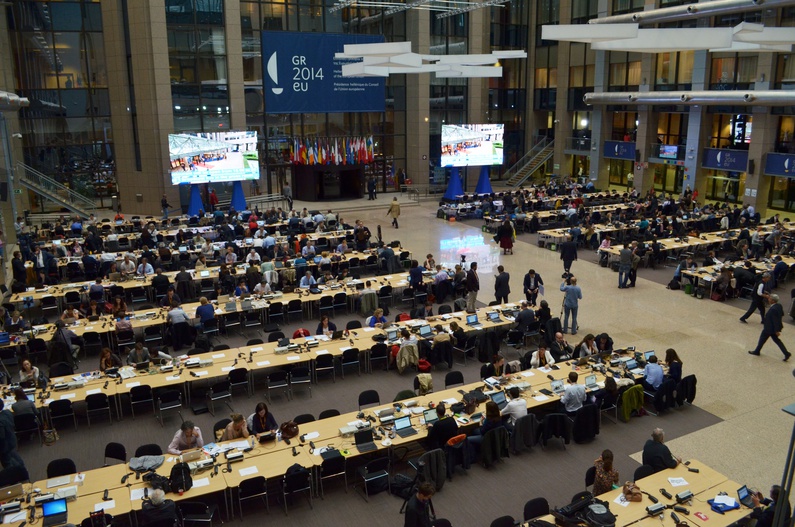
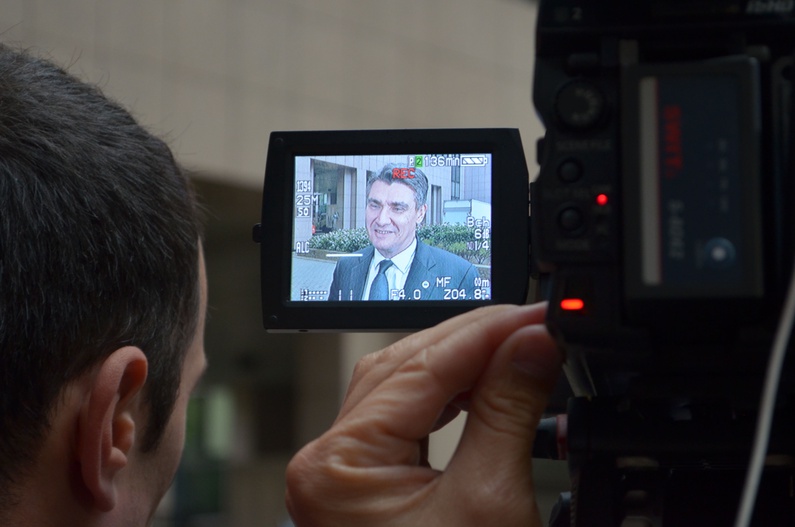
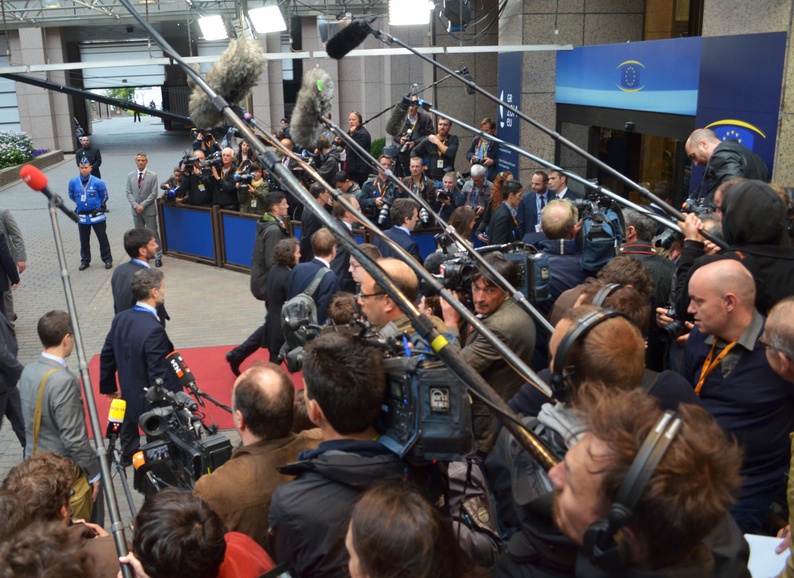
Translated from Bataille pour la Commission, 1er Round



